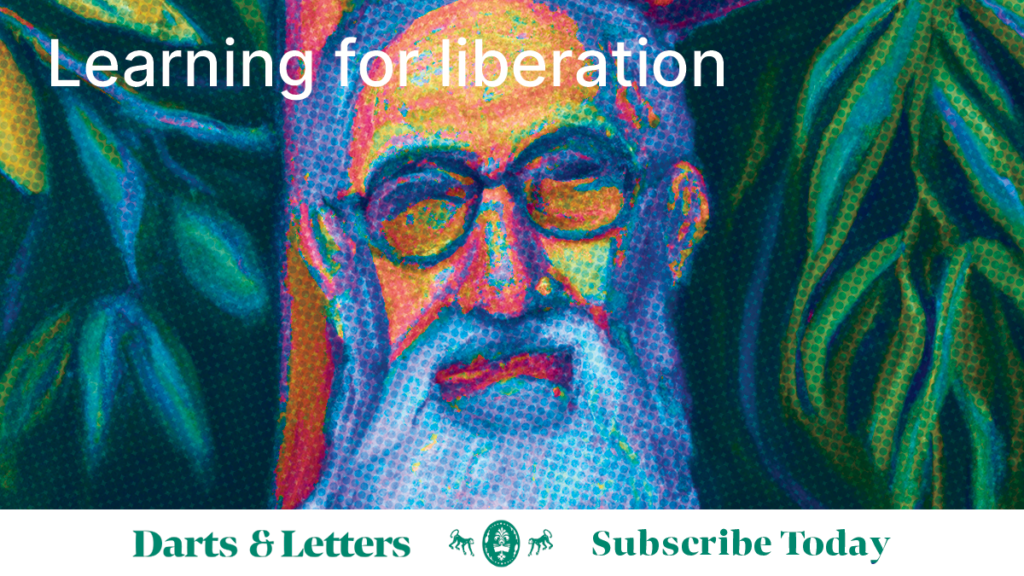EP79: Learning for Liberation: The Life & Legacy of Paulo Freire
Manage episode 394126350 series 3547777

Paulo Freire offers activists and academics everywhere a lesson in what it means to be a radical intellectual. He is known as the founder of critical pedagogy, which asks teachers and learners to understand and resist their own oppression. His subversive books have been banned and burned in many countries, including his native Brazil, where the military dictatorship of the 1960s imprisoned and then exiled him.
On this episode, we learn about Freire’s life and the basics of his foundational text, Pedagogy of the Oppressed, with help from professor emeritus John Portelli. Then, we explore how Freire’s legacy is still shaping our ideas of teaching and learning today. Academic/activist/artist Deborah Barndt takes us to York University’s faculty of Environmental and Urban Change, which is rooted in the work of Freirean scholars. Next, we learn about how Freire’s pedagogy is put into practice to advocate for disabled learners, with Mark Castrodale, a teacher, disability officer, and scholar of critical disability and Mad studies. Finally, social worker Sharon Steinhauer tells us the story of the University at Blue Quills, and how an act of Indigenous resurgence led to the beginning of a network of decolonial universities in Canada.
This is a production of Cited Media. This episode received support from the Social Sciences and Humanities Research Council of Canada. It is part of a series of episodes on the relationship between activism and academia. Our scholarly advisors on this series are Professors Lesley Wood at York University, Sigrid Schmalzer at the University of Massachusetts Amherst, as well as Sharmeen Khan, Sami McBryer, and Susannah Mulvale. For a full list of credits, contact information, and more, visit our about page.
100 episodes




